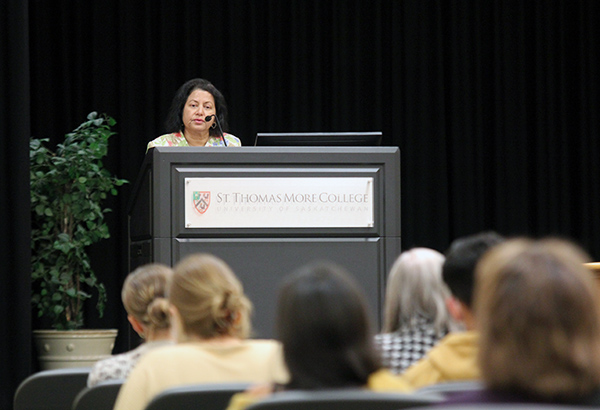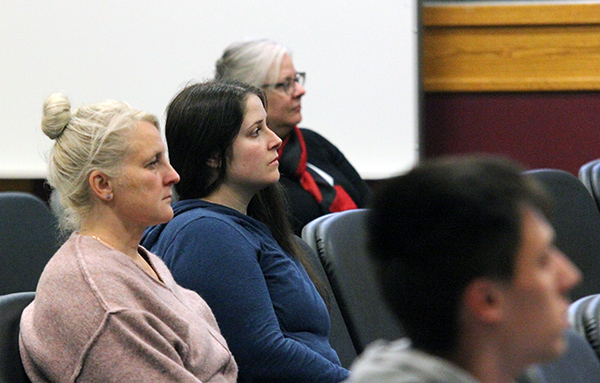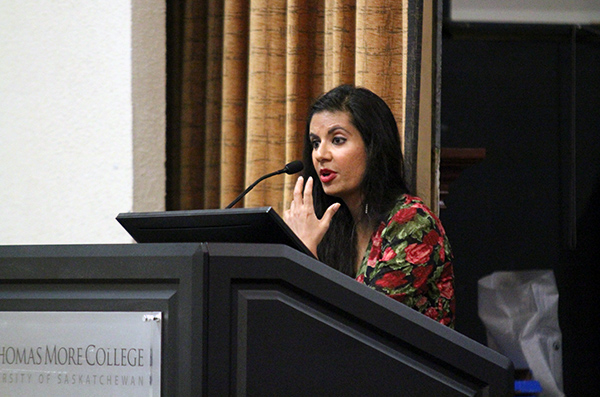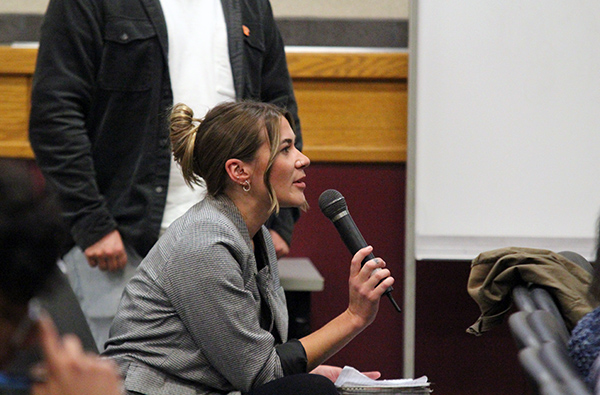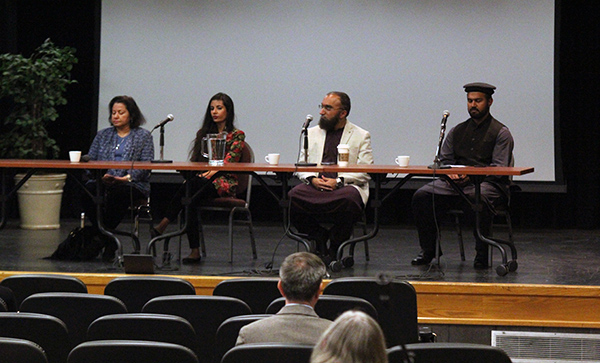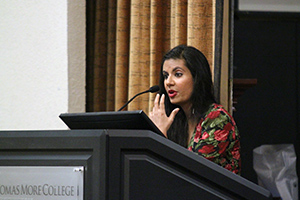
Peace conference sheds light on true nature of Islamic faith
Participants hear how faith-inspired principles foster cultures of peace and justice
By Paul SinkewiczDeeply misunderstood and unfairly vilified, Islam has more in common with other faiths than most people realize, according to organizers of a recent peace conference.
The Islam, Peace, and Justice Conference was held at St. Thomas More College (STM) on Sept. 21 and 22, including both live and streaming events.
“The goal of this conference is to challenge worn-out stereotypes about Muslims, stereotypes that all too often equate Islam with violent extremism,” said Gertrude Rompré, co-Director of the Irene and Doug Schmeiser Centre for Faith, Reason, Peace, and Justice. “In the place of these stereotypes, the participants and the presenters at this conference will illustrate how faith-inspired principles can, and do, foster cultures of peace and justice.”
The Irene and Doug Schmeiser Centre for Faith, Reason, Peace, and Justice – housed at STM – presented the conference in partnership with the Islamic Association of Saskatchewan, the Saskatoon Peace Coalition, and the STM Department of Religion and Culture.
It attracted participants from all over the world.
Rompré noted it is natural to ask: Why would a Catholic college be hosting a conference focused on Islam, Peace, and Justice?
“There are a lot of good answers to that question, but I think one of the main answers is: because we are kin. There is a kinship that exists between our traditions, the Abrahamic faiths, that share so much in terms of a vision for humanity.”
The first day of the conference include two online panels: Historical and Sociocultural Contexts and Contested Issues: War, Peace, and Justice.
In the evening, keynote speaker Dr. Asma Afsaruddin, Professor of Islamic Studies at Indiana University, presented her talk titled Islamic Perspectives on Peacemaking and Co-Existence.
Day 2 saw panels on: Common Narratives, Peace Education, and Environmental Issues and Peacebuilding in Contemporary Practice.
It was followed by Make Jihad Not War: Decolonizing the Law of Violence and the Violence of Law, presented by Azeezah Kanji, legal academic and scholar, and Director of Programming at the Noor Cultural Centre in Toronto.
Each online discussion was made up of panelists working in the field of Islamic thought, education, or justice.
After the closing address on Thursday evening, the conference concluded with a synthesis panel that included the two keynote speakers, as well as Taseen Desin, from the Islamic Association of Saskatchewan and Imam Saqib Mahmood Zafar, from the Ahmadiyya community of Saskatoon.
“We need to broaden our sense of community,” said Dr. Afsaruddin. “It’s not just our neighbourhood anymore. It’s the world. We do have to cultivate that sense of global belonging – that what we do here matters.”
“We are obligated to everyone we know personally, but also people we’ve never met because our lives are intertwined. Our goals are intertwined, and we are all in this together.”
